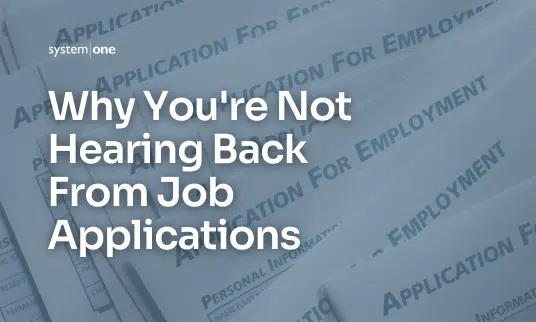Strategies for Answering Difficult Interview Questions

Your resume got noticed, and now you're interviewing for an awesome new job. Congratulations! But, wait, the interview has shifted from the beginning of conversation pleasantries (yes, the weather has been nice lately) to some hard-hitting questions. What do you do?
This article will help prepare for some of the most common difficult interview questions and explain why hiring managers are likely asking them in the first place.
Having good answers to these questions is critical. Interviews are often heavily weighted in a hiring manager's decision, and a subpar answer to a tough question could give them a reason to hire someone else.
We'll go over the following questions:
- What is your biggest weakness?
- What was your least favorite part about your last job?
- Why do you want to work here?
- How do you handle stress?
- Why should we hire you?
Answering: What is your biggest weakness?
This question is the gold standard of difficult interview questions. You'll likely run into some form of it in almost every interview.
When answering "What's your biggest weakness?" it is important to be honest about two things: An actual shortcoming. And (here's the key) how you are managing it.
We all have strengths and weaknesses. You don't have to be perfect. Steph Curry, one of the highest-regarded basketball players in history, has missed almost 60% of his attempts at 3-point shots.
When hiring managers ask you about weaknesses, they really want to know how you approach self-improvement.
So you get asked about weakness, don't
- Say you have no weaknesses.
- Respond with, "I just work too dang hard." Someone already thought of that answer. It is played out.
- Talk about something outside of work. The interviewer doesn't want to hear personal details.
To address this question, choose a real weakness that is not detrimental to your job performance and that you are actively working on. For example, if you have little experience in a job-related area, talk about how you are taking time to improve your skills. This will show the interviewer you can be self-critical and take the necessary steps to improve.
Answering: What was your least favorite part of your last job, or why do you want to leave your current role?
In answering this question, you want to avoid being too negative or critical of any of your employers. The interviewer will likely ask this question to see if you would enjoy the new position and gauge how you talk about people when they aren't in the room. Being too critical, without a concrete reason, can harm your prospects.
Instead of talking smack about another employer, use this time to highlight what you’re looking for within your next company. For example, if your interviewer's company has a strong reputation for diversity, equity, and inclusion, mention that you are interested in working at a company whose values closely resemble your own. This is a great way to turn this question around and discuss your excitement about this new opportunity.
Bonus points: say something nice about your former employer. Even if you hated working there, you can still say you learned a lot and made a lot of connections.
Answering: Why do you want to work here?
When asked this question, the interviewer wants to gauge your genuine interest. This question is a great opportunity to show you have done a significant amount of research on the company and position you are applying for.
Do not answer this question by saying that you just need any job (even if it is the case. We've all been there, no judgment). Do not use pay or benefits as a reason, either. Instead, keep the conversation specific to what you like about the company and the position. If there is an opportunity for growth. Talk about it. If the company is expanding into new markets and you want to be a part of that. Tell them.
Answering: How do you handle stress?
The reason behind this question is pretty straightforward with no hidden meaning. The interviewer wants to know how you will react in stressful situations. Your answer should include examples of how you have handled stress in the past. This will give the interviewer confidence that you will be able to handle stressful situations in the future. Simple as that.
When discussing your past examples of handling stress, be careful not to blame others for the stress and instead focus on how the way you dealt with the situation resulted in a positive outcome.
Don't deny that you feel stressed sometimes (everyone does, we're all human). This might lead the interviewer to believe you didn't take your last job seriously.
Answering: Why should we hire you?
This is a common final question in interviews and is a great opportunity for you to emphasize your unique abilities. Be specific about why you would be a great hire to set yourself apart from the crowd. Use your research on the company and the position to show how you align with the organization's core values. Be sure to highlight what makes you unique and show how you can add value to their team!
Conclusion
The interview process can be difficult, especially when it feels like the interviewer is asking questions to purposely trip you up. Make sure you spend time doing extensive research on the company and position and always remember to avoid being negative. You can do this!
If you need a hand with interview prep or simply getting to the interview stage with an awesome organization, System One can help. Through our extensive network of companies, System One offers attractive opportunities to individuals seeking: full-time positions, contracting, consulting, projects, long-term programs, etc.
Ready to see why we put more than 9,000 people to work in the US, Canada, and the UK? Schedule a time to meet with one of our recruiters.
Looking for business solutions?
Explore System One

